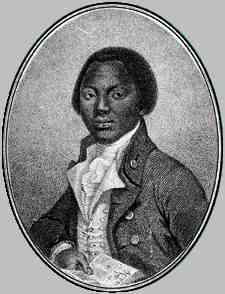LITR 4332: American Minority
Literature

|
Copy of 2005 Midterm (final version) |
|
LITR 4332: American Minority Literature
UHCL, fall 2005 Midterm Examination. 17 October.
Format: In-class or email; open-book and open-notebook.
In-class students should write in blue or black ink in a bluebook or on paper of choice. Email students should work things out as they can on the exam itself or in separate files or attachments. Email students send the completed exam to whitec@uhcl.edu. Try both of the following
· Paste the contents of the appropriate word processing file directly into the email message.
·
“Attach” your word processing file to an email message. (My computer
and programs work off of Microsoft Word 2000. If in doubt, save your word
processing file in "Rich Text Format" or a “text only” format.)
Relative weight: 20% of final grade
Length: Given
people's different styles, lengths vary. Generally the best exams have more
writing; less impressive exams look scanty.
Time: The exam should take at least two hours to complete, but you may use the entire class period (2 hours and 50 minutes). In-class students are given the exam at 4pm, to be returned by 6:50pm. All students are emailed the exam at approximately 3:45pm, when the exam is also posted on the course webpage. Email students must email the exam by 8pm. Their time is more flexible to account for possible interruptions. However, email students should spend no more than 2 hours and 50 minutes in writing the exam, and they should keep a log indicating when they start and stop. (Pauses or interruptions are okay.)
Special references:
All students are required to make at least one reference to previous midterms. You are welcome to make more than one, but don't let the references take over your exam.
Students are welcome to use Black Girl Lost (our Rita-cancelled text) in either or both essays, but not required
Midterm organization: 2 essay questions / answers
Topic 1: longer, comprehensive essay on minority identity and the African American Dream
Topic 2: shorter, more focused essay on personal choice of topic
Identify which questions or items you're answering.
Topic 1: longer, comprehensive essay on minority identity and the African American Dream
Write a complete, unified essay of one hour to an hour and a half answering the following question:
How does this course define minority literature and culture in terms of its differences from the dominant culture, and what different stories result from the meeting of the minority and dominant cultures?
Refer to the following terms and objectives:
Essential terms:
- immigrant narrative
- American Dream
- minority experience
- the Dream
- plus consider "social contract" (see links below).
Essential objectives:
- Objective 1 (minority concept)
- Objective 3 (American Dream and alternative narratives, esp. "the Dream")
Refer to at least 3 of the following 4 texts:
Slave Narrative of Olaudah Equiano (in Classic Slave Narratives)
Refer to either Douglass's or Jacobs's slave narratives (or both)(in Classic Slave Narratives).
Refer to I Know Why the Caged Bird Sings.
Welcome to refer to poetry presentations or to texts beyond the course's readings (briefly).
Expected outcomes: Demonstrate comprehension of terms and objectives in the language and narratives of our readings. Express purpose of course and subject.
Time-frame: 1 hour to 1 hour & 30 minutes
Length? Depends on paragraph length, but most students would write at least 4-6 substantial paragraphs in answering this question.
Topic 2: shorter, more focused essay on personal choice of topic
Write a personal essay responding to an aspect of our course's readings and content that you wish to develop in more detail.
Choosing a topic: Insofar as you reflect and think on our course and its meaning for American literature and culture, what issues do you find yourself returning to?
Which subjects, aspects, or angles matter most to you, and why?
Some overlap with Topic 1 is permissible, but feel free to develop something altogether different--only make your subject and its discussion matter to a reader from this class (which will be me for starters, but also future students).
Review or connect to objectives. Which objectives or parts of objectives would you emphasize? Or what would you add?
Development of topic:
- Regarding your topic, what keeps coming up in our readings? How do our readings introduce and develop your topic?
- If you were teaching some of this material, what would you emphasize or change and why? (Welcome to apply to different age or grade levels.)
- Feel free to frame your essay in a learning or questioning mode. For instance, what questions has the course raised, and how are you beginning to answer them?
- If your topic obviously connects to course objectives, it is your responsibility to make these connections and not to act as though the objectives aren't there for everyone in the class to keep in mind.
Textual references:
- Refer to at least 3 texts from our course readings (paperbacks, handouts, poems).
- Welcome to refer briefly to texts beyond our readings.
Expected outcomes: Demonstrate knowledge of course as well as creativity and critical thinking in reacting to shared materials. Appeal to the shared interests of our class at the same time that you potentially enlarge our interests.
Time-frame: at least 1 hour to 1 hour and a half
Length? Depends on paragraph length, but most students would write at least 3-5 substantial paragraphs in answering this question.
How to prepare:
You may anticipate that the topics or questions will resemble what is written above, though their expression will be improved.
Do as much note-taking, outlining, and prewriting as you find helpful.
Reserve the actual writing of your essays for the exam period.
Information regarding "Social Contract" terminology for Topic 1 (not required):
Definition of Social ContractDefinition of Social Contract Theory
"Beyond the Social Contract Myth"
Parenting: a New Social Contract
